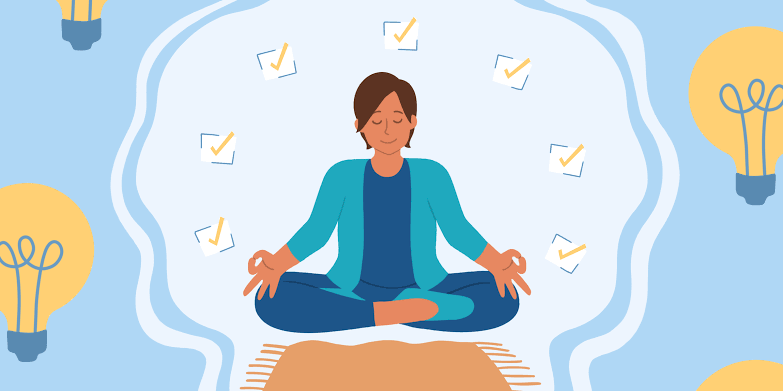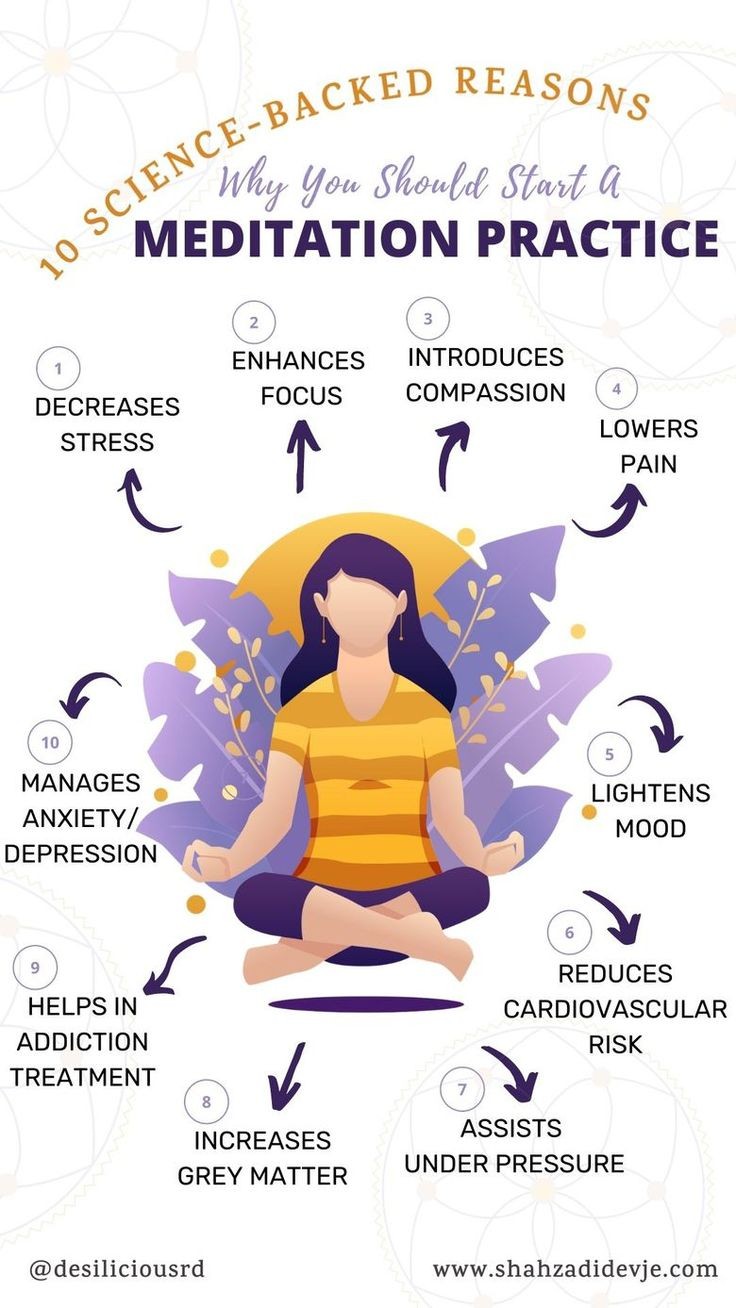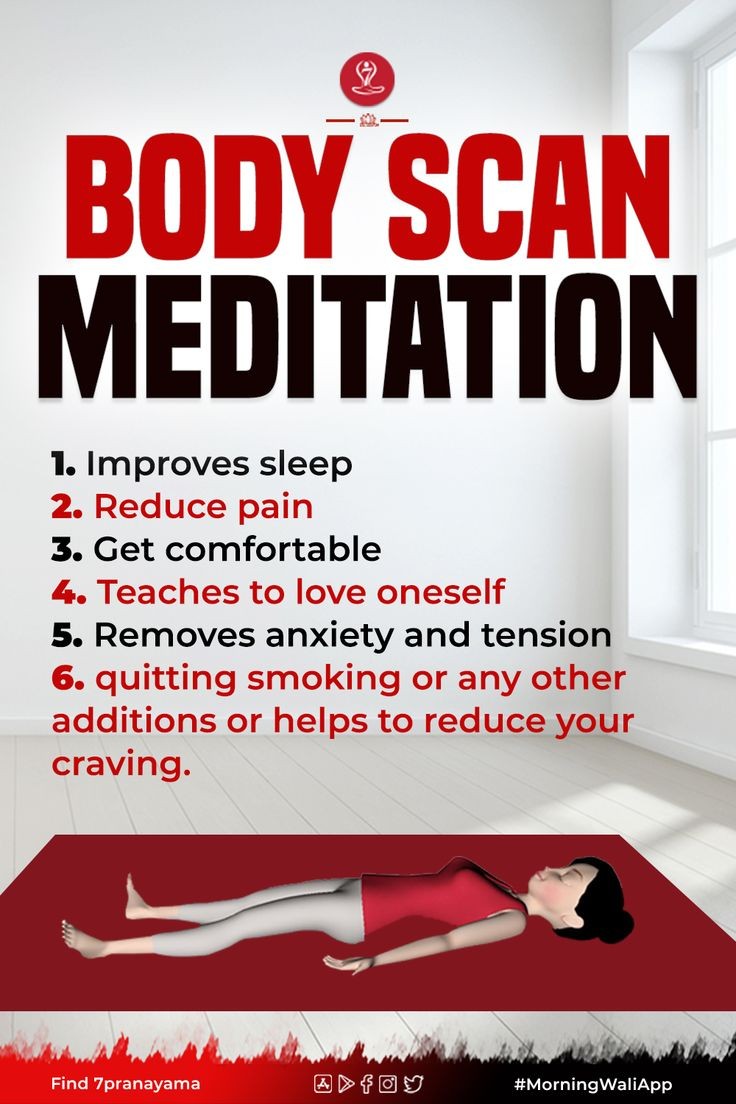The benefits of meditation: scientific evidence and practical tips for beginners.
Meditation is a practice that has been around for thousands of years and is used to calm the mind, reduce stress, and increase overall well-being. There is a growing body of scientific evidence that supports the benefits of meditation for both physical and mental health. Meditation is a practice that has been around for thousands of years and has gained increasing popularity in recent times. It is a mental exercise that involves training the mind to focus and calm the thoughts, ultimately leading to greater inner peace and clarity. While meditation has long been associated with spiritual practices, there is now a growing body of scientific evidence that suggests it can provide numerous benefits for mental and physical health.
Research has shown that regular meditation practice can reduce symptoms of anxiety and depression, improve cognitive function, boost immune system function, reduce inflammation, and even slow down the aging process. Additionally, meditation has been found to help with addiction, pain management, and improving sleep quality.
If you are new to meditation, it can seem daunting to get started. However, there are many simple techniques that can help you ease into the practice. Some tips for beginners include finding a quiet and comfortable space to meditate, setting a regular schedule for practice, and starting with short sessions of just a few minutes at a time.
Overall, incorporating regular meditation practice into your daily routine can provide a multitude of benefits for both your mental and physical well-being.
Scientific Evidence for the Benefits of Meditation:
Reduces Stress:

Meditation has been shown to reduce the levels of cortisol, a hormone associated with stress. In addition, meditation has been found to reduce symptoms of anxiety and depression. Meditation is a powerful tool for reducing stress and promoting relaxation. Here are some ways that meditation can help reduce stress:
Relaxation Response:
Meditation can activate the relaxation response, which is the opposite of the stress response. This response helps to calm the body and mind, reduce blood pressure and heart rate, and promote feelings of peace and relaxation.
Mindfulness:
Meditation can also help cultivate mindfulness, which is the practice of being fully present and aware of the moment. This can help reduce stress by allowing you to focus on the present instead of worrying about the past or future.
Self-Awareness:
Meditation can increase self-awareness, which can help you recognize the signs of stress in your body and mind. This awareness can help you take proactive steps to manage stress before it becomes overwhelming.
Better Sleep:
Meditation can also improve the quality of your sleep, which is essential for reducing stress. A good night's sleep can help you feel more relaxed, focused, and energized throughout the day.
Emotional Regulation:
Meditation can help regulate emotions, reducing feelings of anxiety and depression, which are often associated with stress.
Overall, meditation is a powerful tool for reducing stress and promoting relaxation. By cultivating mindfulness, increasing self-awareness, and improving emotional regulation, meditation can help you manage stress more effectively and lead a more balanced and fulfilling life.
2. Improves Focus:

Meditation has been found to improve attention and focus. A study conducted by the University of California found that those who practiced mindfulness meditation had better working memory and cognitive flexibility. Improving focus is a key aspect of meditation practice. Here are some tips that may help improve focus during meditation:
Choose a quiet and comfortable place: Choose a quiet place where you won't be disturbed during your meditation practice. This will help you concentrate better and avoid distractions.
Set a specific time: Set a specific time for your meditation practice and stick to it. This will help your mind prepare for the practice and make it easier to focus.
Start with short sessions: If you're new to meditation, start with short sessions of 5-10 minutes and gradually increase the time as you become more comfortable with the practice.
Focus on your breath:
During meditation, focus on your breath and the sensations of your body as you inhale and exhale. This will help you stay focused and present in the moment.
Notice distractions but don't engage with them: When distractions arise, simply notice them without engaging with them. Acknowledge them and then gently bring your attention back to your breath.
Use guided meditations:
Guided meditations can help improve focus by providing structure and guidance for your practice. There are many apps and websites that offer guided meditations, so find one that works for you.
Practice regularly:
Regular meditation practice is key to improving focus. Try to practice every day, even if it's just for a few minutes, to help build your meditation skills and improve your ability to focus.
3. Enhances Emotional Well-being:

Meditation has been shown to enhance positive emotions such as joy, love, and compassion while reducing negative emotions such as anger and fear. Meditation has been shown to have numerous benefits for emotional well-being. Here are some ways in which meditation can enhance emotional well-being:
Reduces stress:
Meditation has been shown to reduce levels of the stress hormone cortisol, leading to a reduction in stress levels and an improvement in emotional well-being.
Increases mindfulness:
Mindfulness meditation can help you become more aware of your thoughts and emotions, allowing you to better understand and regulate them.
Improves mood:
Regular meditation practice has been shown to improve mood, leading to decreased symptoms of anxiety and depression.
Boosts self-esteem:
Meditation can help you develop a more positive self-image and increase self-acceptance, leading to greater self-esteem.
Cultivates compassion:
Loving-kindness meditation can help you develop greater compassion and empathy for others, leading to improved relationships and greater emotional well-being.
Enhances emotional resilience:
Regular meditation practice can help you develop greater emotional resilience, allowing you to better cope with difficult emotions and situations.
Overall, meditation can be a powerful tool for enhancing emotional well-being and improving mental health.
4. Lowers Blood Pressure:

Meditation has been found to lower blood pressure in those with hypertension. There is evidence to suggest that regular meditation can lower blood pressure. Several studies have shown that people who practice meditation regularly have lower blood pressure than those who do not.
One study published in the Journal of Alternative and Complementary Medicine found that regular practice of transcendental meditation led to a significant reduction in both systolic and diastolic blood pressure in hypertensive individuals.
Another study published in the American Journal of Hypertension found that mindfulness-based stress reduction (MBSR) led to a significant reduction in both systolic and diastolic blood pressure in prehypertensive and stage 1 hypertensive individuals.
There are several possible explanations for how meditation may lower blood pressure. One possibility is that it reduces stress and anxiety, which are known to contribute to hypertension. Another possibility is that it may improve the functioning of the autonomic nervous system, which plays a role in regulating blood pressure.
It is important to note that while meditation can be a helpful tool in managing blood pressure, it should not be used as a substitute for medical treatment or medication prescribed by a healthcare professional. It is also important to consult with a healthcare professional before starting a new meditation practice, especially if you have a pre-existing medical condition.
5. Boosts Immunity:
Meditation has been found to increase activity in the part of the brain associated with positive emotions, which in turn can boost immunity. There is evidence to suggest that meditation may have a positive impact on immune function. Stress is known to suppress the immune system, and meditation has been shown to reduce stress and promote relaxation, which could potentially enhance immune function.
A 2016 review of research on the effects of mindfulness meditation on the immune system found that the practice can have a positive impact on immune function. Specifically, mindfulness meditation has been shown to increase the activity of natural killer cells, which are important in fighting off viruses and cancer, and to decrease the production of inflammatory cytokines, which can contribute to chronic disease.
Another study published in the Annals of the New York Academy of Sciences found that mindfulness-based stress reduction (MBSR) had a positive effect on the immune system in breast cancer survivors. Participants in the MBSR group had higher levels of natural killer cell activity and lower levels of pro-inflammatory cytokines than those in the control group.
Research is needed to fully understand the impact of meditation on the immune system, there is promising evidence to suggest that it can be a beneficial practice for overall health and well-being, including immune function.

Practical Tips for Beginners:
Start with Short Sessions:
Start with just a few minutes of meditation each day and gradually increase the time. By starting with short meditation sessions, such as 5-10 minutes, you can gradually build up your practice over time. You can increase the length of your sessions as you become more comfortable and confident in your ability to focus and quiet your mind.
Remember that meditation is a practice, and it's normal for the mind to wander. Don't be too hard on yourself if you find it difficult to concentrate at first. With regular practice, you'll find that it becomes easier to quiet the mind and focus your attention.
Find a Comfortable Position:
Sit comfortably in a chair, on the floor, or use a cushion. Finding a comfortable position for meditation is important to allow you to relax and focus on your practice without being distracted by physical discomfort. Here are some tips to help you find a comfortable meditation position:
Sit on a cushion, Use a chair, Use props:
Experiment with different positions:
There is no one-size-fits-all approach to meditation positions, so it's important to experiment with different positions to find what works best for you. Try sitting cross-legged, kneeling, or even lying down to find the most comfortable position for your body.
Remember, the key to a successful meditation practice is not the position you choose, but rather your ability to focus your mind and find inner peace.
Focus on Your Breath:
Focus on your breath as it enters and leaves your body. If your mind starts to wander, gently bring your attention back to your breath. Focusing on your breath is a common technique used in meditation. It involves paying attention to the sensation of the breath as it moves in and out of your body.
To begin, find a quiet place where you can sit comfortably. You can sit in a chair or cross-legged on the floor with a cushion. Close your eyes or keep them open, whichever feels more comfortable for you. Take a few deep breaths, inhaling through your nose and exhaling through your mouth. Then, allow your breath to settle into its natural rhythm.

Be Kind to Yourself:
It is natural for the mind to wander during meditation. When you notice your mind wandering, simply acknowledge it and bring your attention back to your breath. Being kind to oneself is an important aspect of meditation practice. It involves treating oneself with compassion and understanding, especially when faced with difficulties or setbacks. Here are some tips for being kind to yourself in meditation:
Let go of judgments:
Cultivate self-compassion:
Practice gratitude:
Set realistic expectations:
Use positive self-talk:
Remember that being kind to yourself is an ongoing practice, and it takes time and effort to cultivate. With patience and perseverance, you can develop a more compassionate and positive mindset toward yourself in your meditation practice and beyond.
Practice Consistently:
Consistent practice is key. Even a few minutes of meditation each day can have a significant impact on your well-being. Remember, meditation is a journey, and there will be days when it feels harder than others. But by showing up every day and committing to the practice.
Conclusion.
Meditation has numerous benefits for physical and mental health. Starting with short, consistent sessions and focusing on the breath are great tips for beginners. With time and practice, you can experience the benefits of meditation for yourself.


You must be logged in to post a comment.